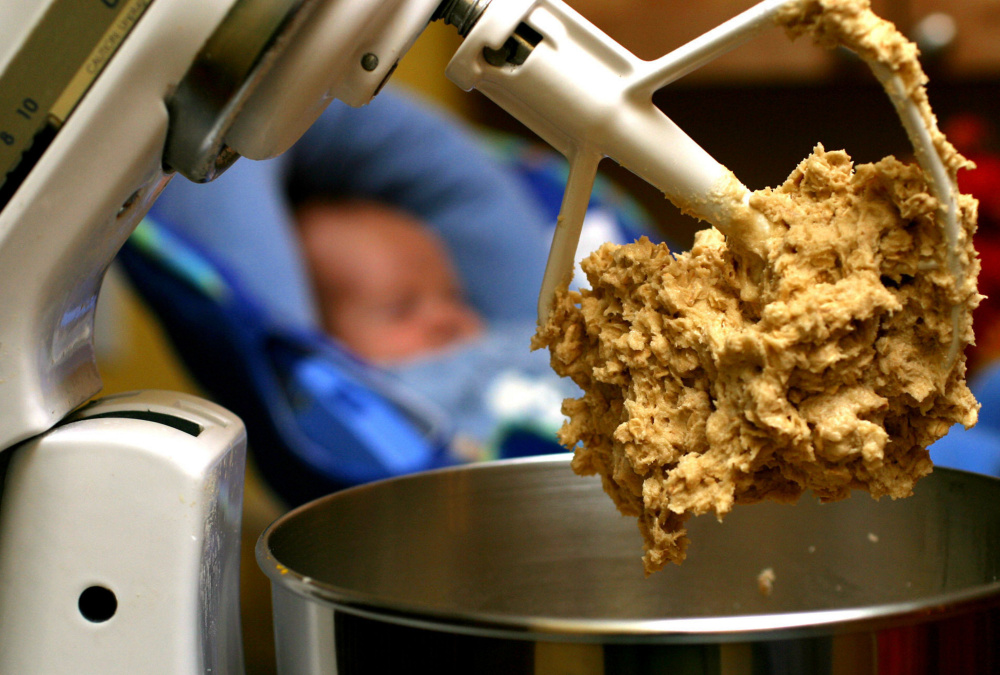MINNEAPOLIS — The General Mills flour recall linked to an E. coli outbreak is rippling into other consumer foods, causing several products to be yanked from shelves in recent days.
Batches of Krusteaz Blueberry Pancake Mix and more than two dozen types of pre-made appetizers produced by Kabob’s Acquisitions are subject to recall because the products were made with General Mills’ flour processed late last year that could be contaminated with the life-threatening bacteria.
And General Mills announced Monday that two flavors of its Betty Crocker cake mixes have been added to its recall list “out of an abundance of caution.” The flavor chips, or bits, in several lots of Betty Crocker Delights Super Moist Party Rainbow Chip and Carrot Cake Mix were made with flour subject to the recall.
General Mills, based in suburban Minneapolis, voluntarily recalled 10 million pounds of Gold Medal flour, Wondra flour and Signature Kitchens flour on May 31 after receiving indication of a potential E. coli outbreak originating in its products. Two weeks ago, the food company expanded the recall dates, which added another 20 million pounds to the recall list. The affected flour was processed at a Kansas City, Mo., facility between Nov. 4 and Dec. 4.
The ripple effect of recalls highlights the interdependence of the food industry as suppliers and producers buy and sell ingredients and finished goods.
Seattle-based Continental Mills, which owns the Krusteaz brand, said no illnesses have been reported from consuming its blueberry pancake mix. But, according to a statement, “the company was notified by our supplier that their product, a blueberry nugget, is made with a small percentage of affected flour which was recalled by General Mills.”
Georgia-based Kabob’s, which largely sells to hotels, institutions and restaurants, is recalling nearly 45,000 pounds of frozen meat and poultry hors d’oeuvres, including chicken wontons, spring rolls, meat-filled puff pastries, quesadillas and more. A supplier told Kabob’s that it had used the General Mills flour in some of its products.
“We are likely to continue to see ongoing recalls of other products, said Bill Marler, a Seattle lawyer specializing in food poisoning lawsuits against food companies. “It looks like the wheels on the bus are coming off, but it’s actually a positive thing. I see recalls as a sign the system is operating like it should.”
Marler expects more products with the flour in them, or those where the manufacturer isn’t sure if it used the affected flour, to be recalled because “the last thing you want to do is to have some child get sick and die and then have to explain why you didn’t recall it.”
Marler estimates the recall costs will top tens of millions of dollars in addition to a drop of flour sales. That, he said, is what forces the industry to face the problem head- on.
“So, recalls, in the long run, are a positive for food safety,” Marler said, “because the industry will add more testing to flour.”
The U.S. Food and Drug Administration recently cautioned the public against eating or handling raw dough made with flour following new reports of people being sickened with E. coli after touching play dough that was given out at restaurants as entertainment.
The number of reported illnesses linked to the flour bacteria has risen from 38 to 42 across 21 states. Three cases have been reported in Minnesota and 11 people have been hospitalized in the U.S. No deaths have been reported, the U.S. Centers for Disease Control and Prevention says.
Send questions/comments to the editors.



Success. Please wait for the page to reload. If the page does not reload within 5 seconds, please refresh the page.
Enter your email and password to access comments.
Hi, to comment on stories you must . This profile is in addition to your subscription and website login.
Already have a commenting profile? .
Invalid username/password.
Please check your email to confirm and complete your registration.
Only subscribers are eligible to post comments. Please subscribe or login first for digital access. Here’s why.
Use the form below to reset your password. When you've submitted your account email, we will send an email with a reset code.